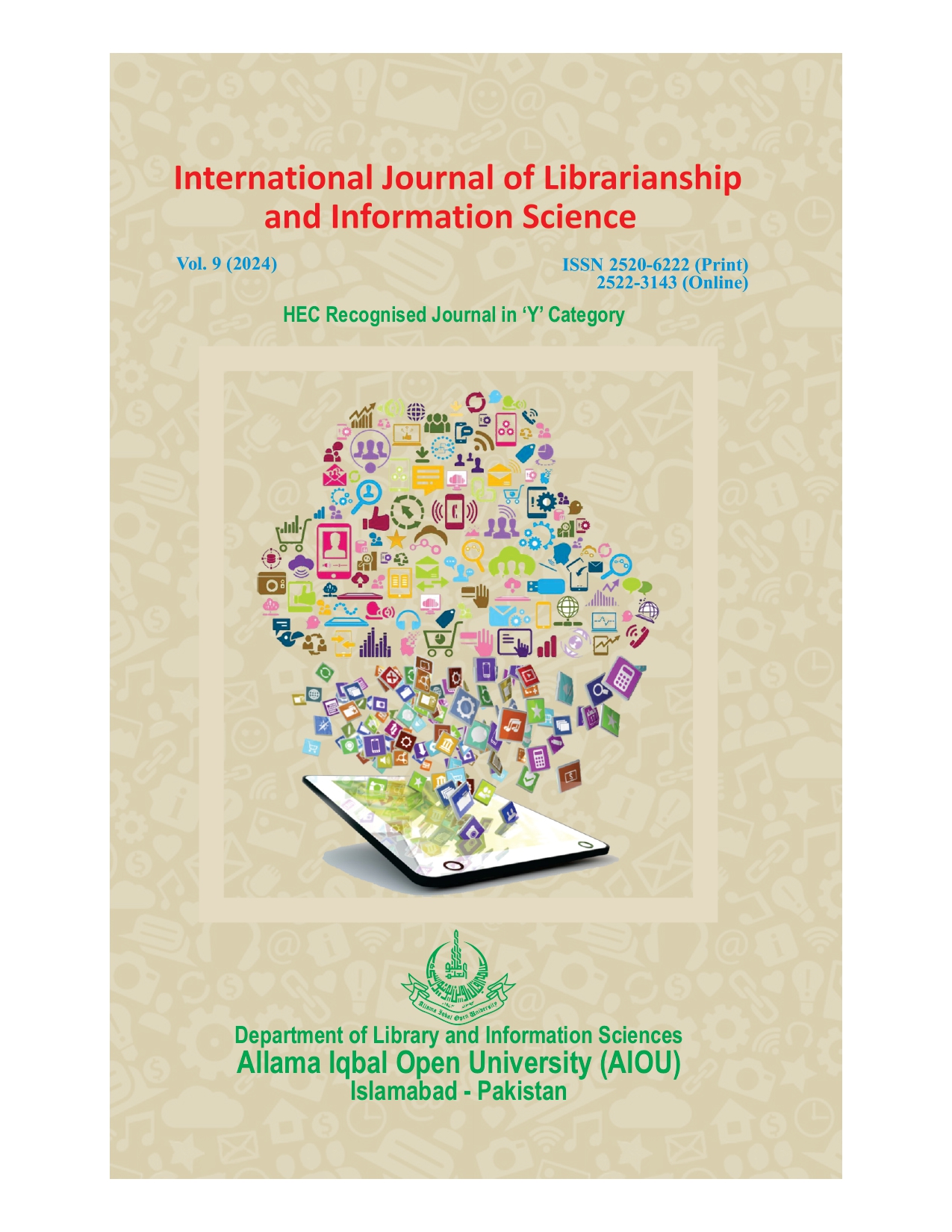Revolutionizing the Information Retrieval: Empowering Librarians through AI Tools in the Recent Age
Keywords:
Artificial Intelligence, Information Retrieval, Library technologies, AI-based tools, AI in Libraries, Revolutionizing Information Retrieval, Empowering LibrariansAbstract
This paper examines the revolutionary impact of artificial intelligence (AI) technologies in recent years. Furthermore, it analyzes how AI tools enable library professionals to transform information sharing and access, how much library experts utilize AI tools, and what obstacles LIS professionals must overcome to incorporate artificial intelligence devices into their daily operations. The study evaluates the pros and cons of using artificial intelligence (AI) using extensive analysis of the available literature and an online poll of working librarians. The quantitative research design was used to justify the objectives of this study. An online survey was used as a research instrument. The targeted population was LIS professionals working in the university libraries of Lahore. There was no sampling technique used in this study because the whole population was taken as a sample. The results indicate that most respondents discovered that using AI tools improved information retrieval, improved processes, and reduced the manual labor they had to do at work. The use of AI technologies in libraries was not without some challenges though, including budget constraints, reluctance toward change, and training difficulties. However, the participants' remarks on how AI-based technologies impact knowledge retrieval were favorable. Artificial intelligence (AI)-powered solutions have been recognized for their capacity to help individuals, improve information dissemination efficiency, increase flexibility to changing needs, expedite procedures while maintaining accuracy, and improve user experience by making the work easier. Although AI can greatly improve information retrieval productivity and performance, it still faces several obstacles, such as a shortage of funds, organization support, and field expertise. In order to overcome these obstacles and optimize AI's potential to enable librarians to provide better services to their audiences in the digital era.





